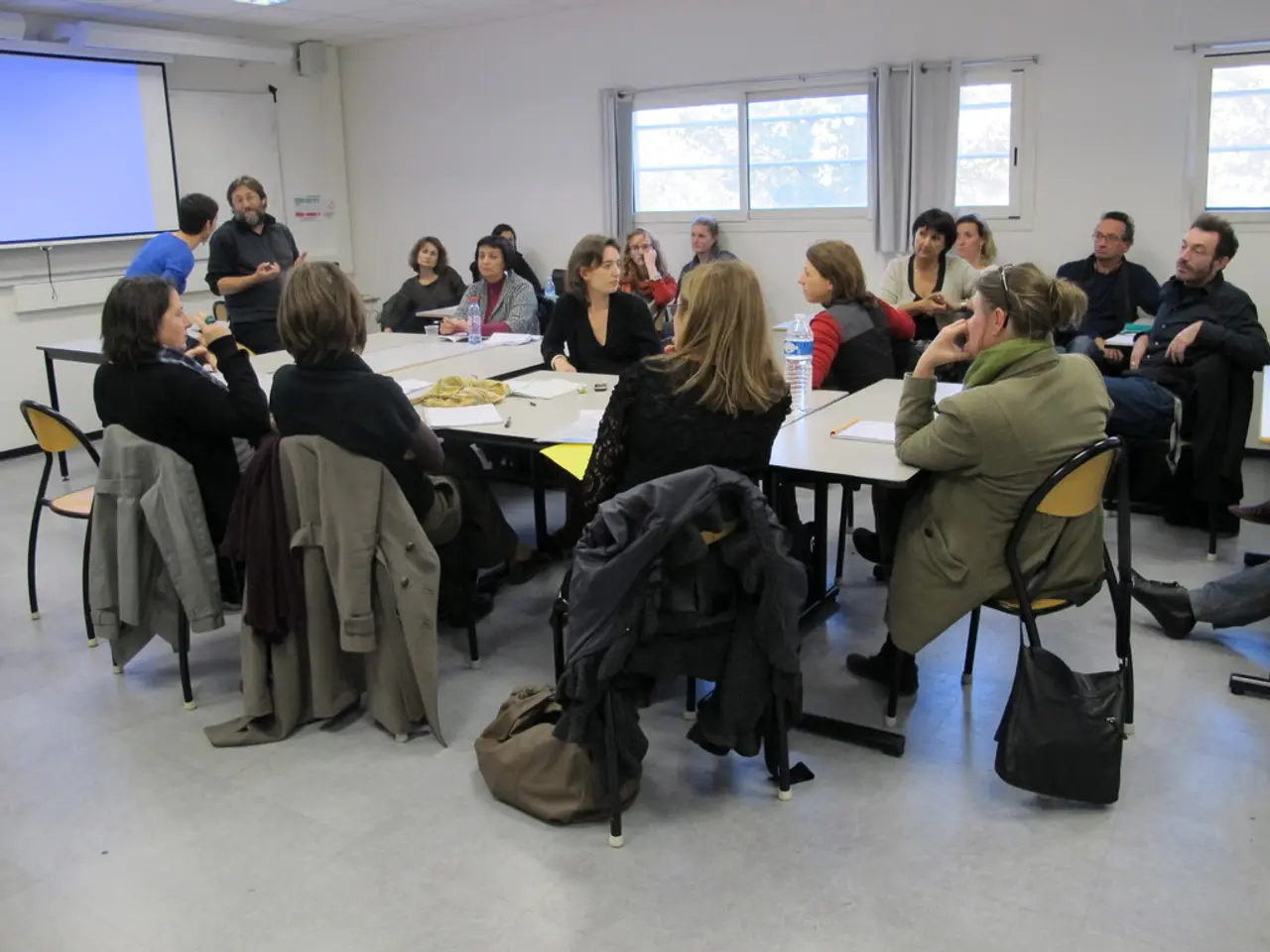Discussion ongoing: Israel may arrange for relocation of Palestinians from Gaza to South Sudan
Israel is reportedly in discussions with South Sudan about a plan to resettle Palestinians from the war-torn Gaza Strip. The proposed resettlement, though not yet finalized, has sparked concern and rejection from Palestinian leaders and the international community, due to potential human rights and international law violations [1][3][4].
Human Rights Concerns
The proposed resettlement raises profound questions about the forced displacement and uprooting of Palestinians from their homeland. This action is equated by many to another form of "Nakba"—the catastrophic displacement of Palestinians in 1948 [1]. Moving millions of people from a refugee population already under siege to a foreign, unstable country rife with its own ethnic and political violence could have disastrous consequences [1][3].
International Law Implications
The proposal could potentially violate international law, especially in regards to forced population transfers and the right of civilians to remain in their homeland during armed conflicts. If coerced or without the full consent of the affected populations, the plan would raise issues related to protections under the Fourth Geneva Convention regarding the treatment of civilians in occupied territories and prohibitions on forcible transfers [1].
South Sudan's Motivations
South Sudan's potential interest in these talks may be linked to diplomatic ambitions, as the discussions could bolster bilateral relations and international support for the young African nation facing its own governance and security challenges [3]. Financial or political incentives might also be factors, although South Sudan publicly denies having agreed to any such resettlement plan [2].
Reactions from Palestinians and the International Community
Israeli Prime Minister Benjamin Netanyahu has suggested Palestinians should leave Gaza voluntarily amid expanding Israeli military control. However, Arab and global leaders widely condemn these plans, viewing them as attempts to erase Palestinian claims and presence in their historic territory [1]. Palestinians and rights groups have rejected these proposals as a potential blueprint for forcible expulsion, in violation of international law [1][4].
Regional Opposition
Egypt is deeply opposed to plans to transfer Palestinians out of Gaza, fearing an influx of refugees into its own territory [5]. South Sudan has already accepted eight individuals swept up in the administration's mass deportations, potentially as an effort to curry favor [6].
Implications for South Sudan
Critics warn that South Sudan should not become a dumping ground for people, nor should it accept to take people as negotiating chips to improve relations [7]. South Sudan is already one of the world's most unstable and conflict-ridden countries, struggling to recover from a civil war that killed nearly 400,000 people and plunged pockets of the country into famine [2]. As an oil-rich nation plagued by corruption and reliant on international aid to help feed its 11 million people, South Sudan wants the Trump administration to lift a travel ban on the country and remove sanctions from some South Sudanese elites [8].
Ongoing Discussions
Six sources have confirmed these discussions to The Associated Press. The discussions are part of a wider effort by Israel to facilitate mass emigration from Gaza [1]. As the talks continue, the plan remains highly controversial and largely rejected by Palestinian leaders.
Migration of Palestinians from the Gaza Strip to the Middle East, specifically South Sudan, could lead to the displacement and uprooting of a significant portion of the Palestinian population, raising questions about potential human rights violations and comparisons to the "Nakba."
The proposed resettlement plan, in light of the region's ongoing war-and-conflicts and political instability, might also violate international law, particularly concerning forced population transfers and the rights of civilians during armed conflicts.
The international community and Palestinians view the resettlement plan as an attempt to erase Palestinian presence in their homeland, while South Sudan's participation in these talks may be influenced by diplomatic ambitions, financial incentives, or a desire to garner international support amidst its own governance and security challenges.








